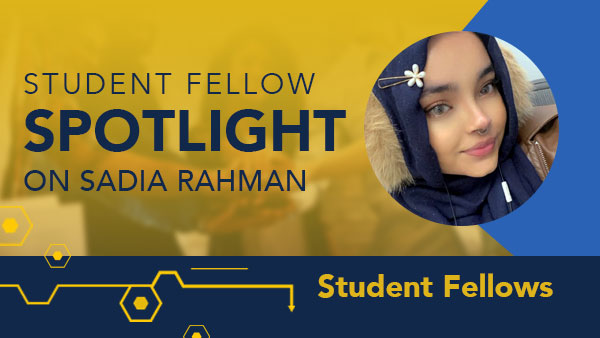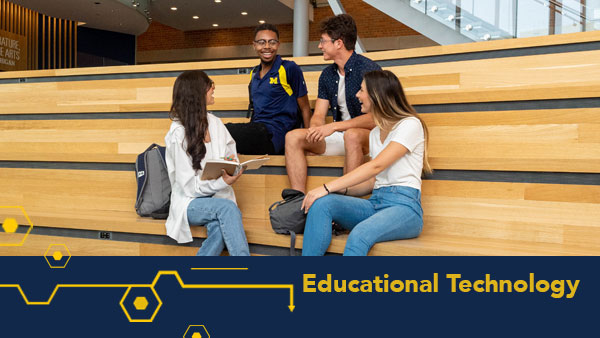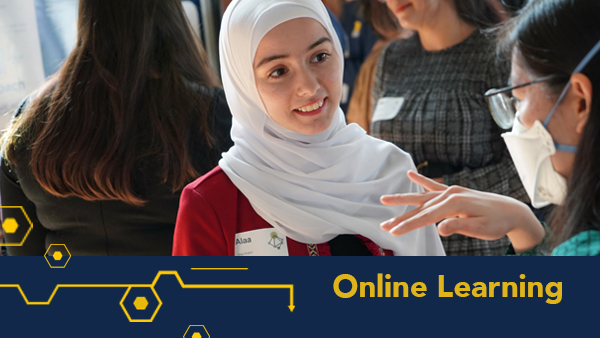This article was originally posted on 5/24/2017 on Inside Higher Ed
James DeVaney, Associate Vice Provost for Academic Innovation
@devaneygoblue
Given the frequency with which I am asked about the summertime pace on university campuses, I suspect there are many who imagine the gears of innovation grinding to a halt. Sorry to disappoint. There is just a bit of a break from the norm but summertime in Ann Arbor is anything but monotonous.
As we imagine again the future model of teaching and learning at a public research university we often create opportunities to collaborate with innovators from other institutions, relax constraints to encourage new ideas, and work together to design a better future. This summer we’ll support collaborative and open research when hosting the Learning Analytics Summer Institute and we’ll go gameful in launching the first Gameful Course Design Summer Institute.
But first up this summer was an interactive workshop focused on micro-credentials and college admissions. Barry Fishman (@BarryFishman) is Professor of Information and Professor of Education at the University of Michigan. Stephanie Teasley (@stephteasley) is Research Professor at the School of Information at the University of Michigan. Last week, Barry and Stephanie hosted a workshop in Ann Arbor that pulled together leaders from more than a dozen institutions and organizations that are actively exploring the potential of micro-credentials.
Barry and Stephanie graciously agreed to answer my questions about the direction of micro-credentials, aka badges, in college admissions as we work toward an elegant design that effectively considers access, participation, and learning.
Question 1: Last week you hosted a workshop at the University of Michigan with support from the National Science Foundation (NSF) that focused on micro-credentials and college readiness. Can you give us the backstory? What was your goal for the workshop? What problems are you trying to address?
This workshop was born out of an interest in exploring new pathways to and through higher education. Our work over the past decade has explored various ways to expand participation and success in higher education, through a range of means. Micro-credentials — also known as digital badges — struck us as a promising tool for recognizing student learning in ways that are not currently captured by more typical measures such as standardized tests and high school GPAs. We were aware of the excellent work being done by colleagues in the Chicago City of Learning and Mouse in NYC to support and record diverse learners’ engagement in a range of informal and formal learning activities using badges, and wanted to see how their work could be leveraged along with efforts at broadening access to higher education. Because of a general orientation towards academic innovation and diversity, equity, and inclusion, the University Michigan has already begun to explore new pathways into the university. The time seemed right to explore this topic further on our own campus.
Question 2: How would you characterize the micro-credentials and badging landscape today? What are some of the most important questions people are working through?
Many if not most of the required technical components are in place for a robust badging infrastructure… but we’re still lacking strong use cases and a coordinated strategy for implementation. This is a common challenge in education (and other fields), where people often focus on isolated elements of a challenging problem, but don’t take on the harder task of building workable solutions or the underlying social and technical infrastructures needed for complex real-world systems. There is a near-final second-generation standard for digital badges from IMS Global, along with a (small) number of groups and companies working on platforms and infrastructure for awarding and sharing badges. Groups like Mouse and Chicago City of Learning are developing practices for awarding and aggregating badges for K-12 learners. And several consortia are thinking about how badges can be used at the college level to indicate workforce readiness. But how these various efforts translate into coordinated broader application remains unknown.
Our workshop focused on the more limited – but still big – domain of college and university admissions. A real challenge for admissions is to develop trustworthy measures of student potential that can be reviewed in a relatively short period of time. Various issues remain challenging: measurement validity (How do we know what a badge measures?), endorsement (Who vouches for the validity of badges?) and scaling (Can badges help us evaluate thousands of applications?).
Question 3: To really explore the connections between micro-credentials and college readiness requires insight from individuals representing a range of roles and organizations. Can you tell us about the workshop participants how you thought about assembling the right group for this particular conversation?
Our goal was to bring together three key stakeholders: organizations that award badges to students, college admissions officers, and people with expertise in educational assessment and innovation. Badge awarding organizations were represented by Mouse and the Chicago City of Learning. College admissions was represented by the University of Michigan Office of Undergraduate Admission and the Penny Stamps School of Art and Design both at Michigan, and Kalamazoo College Admissions, as well as participants from the Parsons School of Design, Eastern Michigan University, the Stevens Institute of Technology, and others. The third group was made up of practitioners, university faculty, and innovation developers. We wanted to get people thinking about opportunities and challenges in both the college admissions space and the digital badge space. In the workshop, everybody was “surprised” by something – some new information or perspective – from a space outside of their normal work.
Question 4: Can you tell us about some of the key takeaways from the workshop? What do you hope to see happen next? Any bold predictions about the future?
The workshop was valuable for bringing important issues to the surface, and for informing different audiences about the nature of challenges faced by the people working in these areas. The goal of a workshop like this is not necessarily to find solutions to problems, but rather to help frame an agenda for making progress in the future. So one big takeaway from our workshop will be recommendations to the National Science Foundation (and others) about which problems in the badging-and-college-admission space need particular attention. Our workshop closed with the participants generating and prioritizing issues that need further focus. While we are still sorting through our notes, some issues that rose to the surface include: Developing an infrastructure that simultaneously meets the needs of college admissions organizations, badge awarding organizations, and learners; Creating systems for validating and endorsing learning from badges to support scalability and trustworthiness; and ensuring that newly created systems do not replicate or inadvertently amplify current inequities in the education system.
Question 5: How does this effort align with your own work as faculty at the University of Michigan? How does it connect to the President’s Academic Innovation Initiative?
We see micro-credentials — also known as digital badges — as a key component of the larger conversation about how we might re-think what teaching and learning looks like at a public research university. The past five years have seen explorations in many areas at Michigan, from MOOCs to learning analytics to personalized coaching, from rethinking the nature of the academic transcript to re-framing classroom assessment with gameful learning. A lot of these efforts are either explicitly or implicitly oriented towards broadening access, enhancing participation, and supporting student success. We believe that digital badges can play a role in all three of these areas. For example, badges can be used to recognize learning and accomplishment. They might also serve as evidence of a student’s readiness for study at a place like Michigan, adding information that goes beyond what we can learn from traditional measures like test scores or GPA. Digital badges can even be used to help identify students with particular interests earlier in their academic careers, so that those students might be steered towards activities that will open up further opportunities and help identify a possible set of higher ed institutions that may best serve their interests and aspirations.
Question 6: What advice do you have for people across the higher ed landscape who are just beginning to think about the potential for micro-credentials? How should they get started? What should they know about the conversation and experimentation already underway?
We encourage people to think broadly about their goals for enhancing access to and supporting learning across higher education. If you treat badges as an “add on” or purely extrinsic incentive or reward for some student behavior, it’s unlikely that they will make a real difference for learners… or for your organization. College admissions is built on an elaborate infrastructure that shapes not just the application process, but K-12 education and how students engage with learning, especially in secondary schools. But that infrastructure came from somewhere, and took time to develop into its’ current form. To make meaningful or lasting change, we need to engage with this infrastructure and design for uses of badges that have meaning and offer equitable access for everyone involved. As with most important challenges in education, there is no “one thing” that leads to real change or improvement. Those who seek to use digital badges to represent learning — at any educational level or for any purpose — will benefit most from partnering with others who are exploring in this domain, and working together to build a new infrastructure for learning supported by badges.


